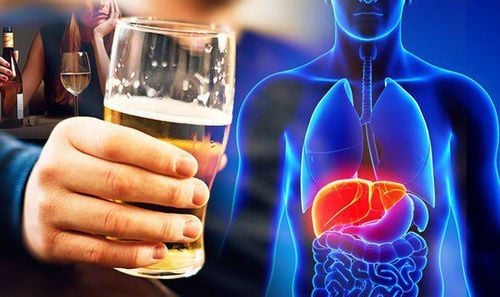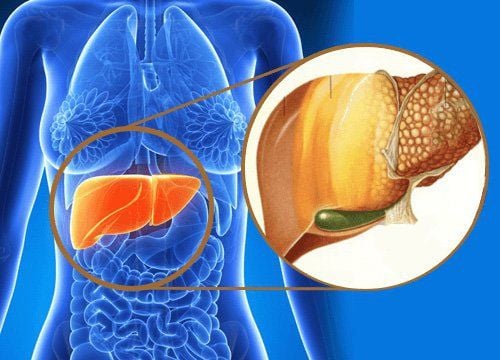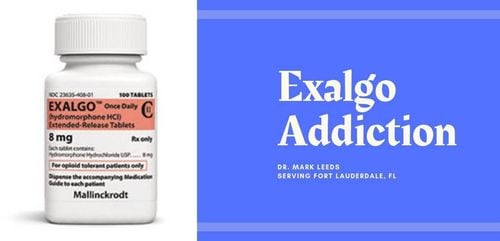This is an automatically translated article.
The article is professionally consulted by Master, Doctor Vu Huu Thang - Emergency Resuscitation Doctor - Emergency Resuscitation Department - Vinmec Ha Long International HospitalAlcohol poisoning is a serious, potentially fatal, consequence of drinking large amounts of alcohol in a short period of time. Excessive alcohol use affects breathing, heart rate, and body temperature, potentially leading to coma and death.
1. What is alcohol poisoning?
Alcohol is a form of ethanol (ethyl alcohol) found in alcoholic beverages, mouthwashes, cooking extracts, some medicines, and some household products.Other forms of alcohol - including isopropyl alcohol (found in lotions and some cleaning products), methanol or ethylene glycol (a common ingredient in antifreeze, paints and solvents) - can cause types of poisoning that require urgent treatment.
Unlike other foods - which take hours to digest, alcohol is quickly absorbed by the body. At the same time, it takes longer for your body to get rid of the alcohol you've had. Most alcohol is processed (metabolized) in the liver. The more alcohol you drink, especially in a short period of time, the higher your risk of alcohol poisoning. Alcohol poisoning can also occur when adults or children accidentally or intentionally drink household products that contain alcohol. If you suspect someone has alcohol poisoning - even if you don't see typical signs and symptoms - seek medical attention right away.

2. Symptoms of alcohol poisoning
Signs and symptoms of alcohol poisoning include:Seizures. Low body temperature (hypothermia). Unconscious, call to ask do not know. Convulsions. Numbness, weakness in one limb or side of the face, slurred speech while awake. Wheezing, stagnant phlegm in the mouth and throat, weak cough. Weak breathing, irregular breathing. Slow breathing (less than eight breaths a minute), irregular breathing (more than 10 seconds interval between breaths). Can take deep breaths and fast breathing. Skin, lips, and nails are pale or pale, cold. Urinating, peeing in the pants, urinating less (less than usual amount of urine). Blurry vision, seeing an object in two. Vomiting, abdominal pain, abdominal distension.

Alcohol poisoning and incompetence to drive occurs when the alcohol concentration is between 80-100mg of alcohol in 100ml of blood. With a concentration of 10-20mg of alcohol in 100ml of blood, it caused obvious behavioral changes, slow movement, and reduced thinking ability. Some people cause coordination disorder, reduced decision-making ability, more severe can cause ataxia, emotional instability and severe disorientation when there is a blood alcohol concentration of 100mg to 200mg in 100ml. blood. With a blood alcohol concentration of 150mg in 100ml of blood, drinkers have nausea and vomiting. At a blood alcohol concentration of 200-300mg/100ml of blood, the patient will slur his tongue and forget in the opposite direction. Higher alcohol concentrations will cause the patient to lose memory. When the blood alcohol concentration reaches 400mg/100ml, the patient will have respiratory depression, coma and possibly death. With blood alcohol levels above 500mg/100ml, it is fatal for most patients. Several factors can increase your risk of alcohol poisoning, including:
Your size and weight Your overall health The percentage of alcohol in your drinks Percentage and amount of alcohol consumed Tolerance Besides, alcohol poisoning can cause serious complications like:
Choking : Alcohol can cause vomiting, because it reduces your gag reflex, which increases your risk of choking if you faint. Apnea: Accidentally inhaling vomit into your lungs can lead to dangerous or fatal breathing disturbances (suffocation). Severe dehydration: Vomiting can lead to severe dehydration, leading to dangerously low blood pressure and a rapid heart rate. Seizures: Your blood sugar may drop low enough to cause a seizure. Hypothermia: Your body temperature can drop so low that it leads to cardiac arrest. Irregular heartbeat: Alcohol poisoning can cause the heart to beat irregularly or even stop. Brain damage: Heavy drinking can cause irreversible brain damage. Dead.
Please dial HOTLINE for more information or register for an appointment HERE. Download MyVinmec app to make appointments faster and to manage your bookings easily.
Reference source: mayoclinic.org













